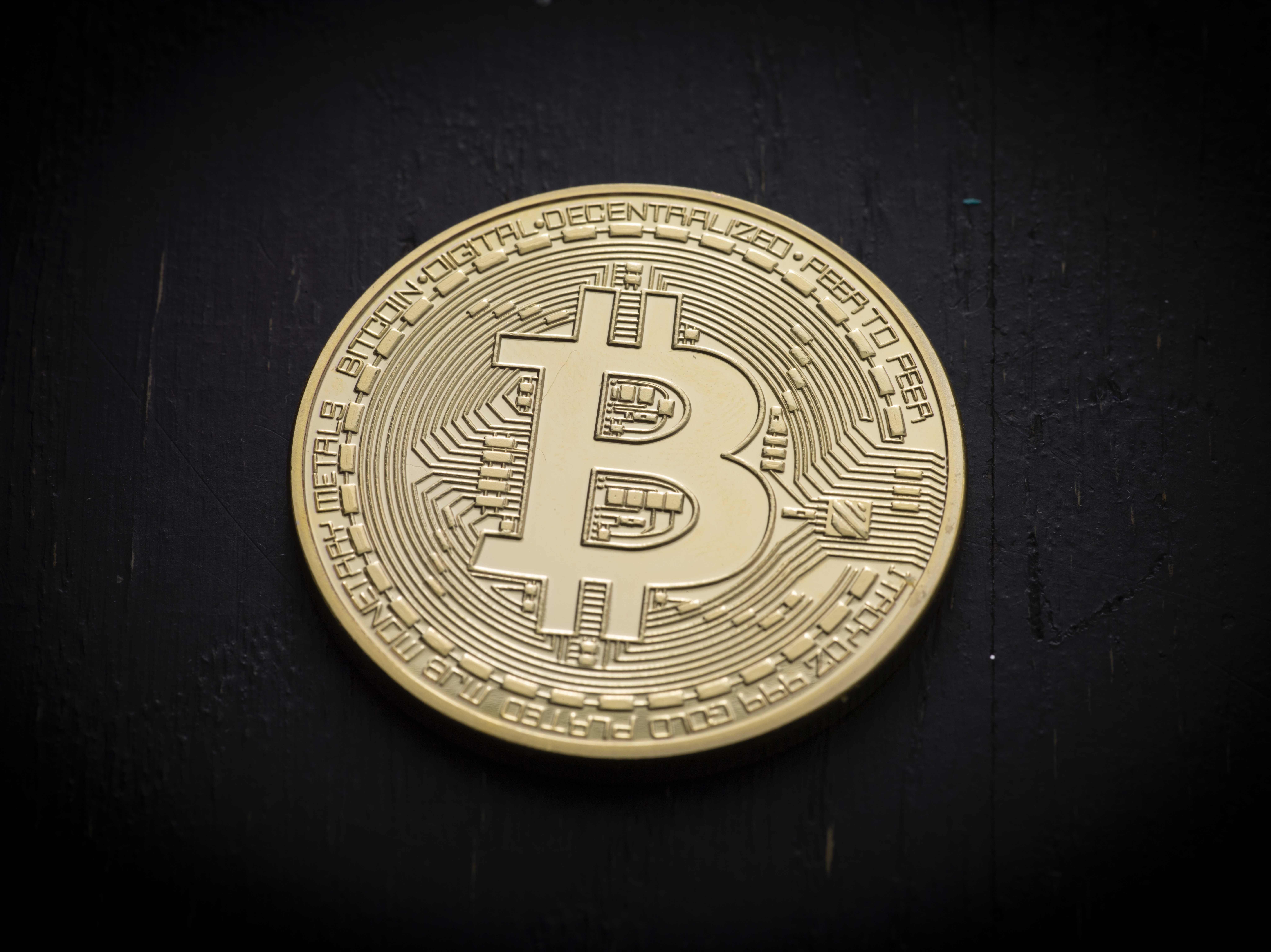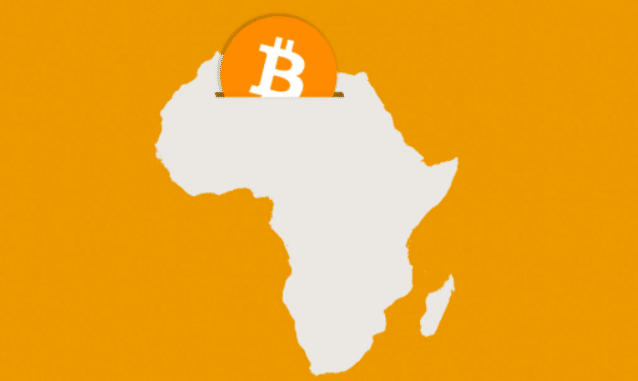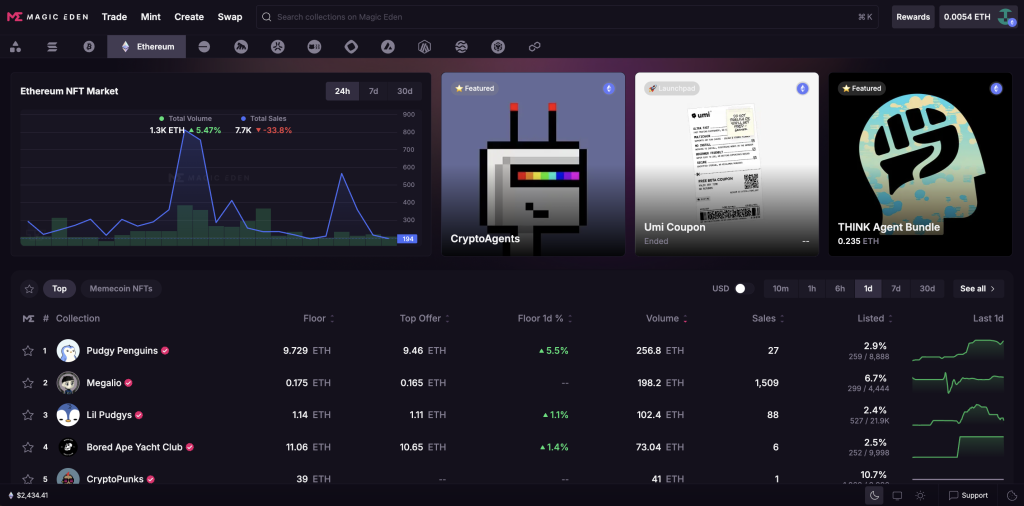Features
Bitcoin on Coal? Cryptocurrency Mining Requires More and More Electricity
Published
7 years agoon

With digital currencies gaining popularity, discussions about Bitcoin’s future attract more and more attention with concerns being raised over the ways it’s being mined and the energy costs of the mining process. This article deals with different mechanisms of cryptocurrencies’ emission and outlines the main advantages and disadvantages on the example of Bitcoin and MILE, a fully decentralised, transparent and environmentally-conscious ecosystem that uses a completely different approach to money-minting.
Bitcoin is rather expensive for the economy. Even if miners use the most inexpensive electricity in the world that costs three US cents per kWh, Bitcoin’s annual electricity bills exceeded two billion USD in summer 2018. According to the most realistic estimates, it was amounted to 3.5 billion USD, if 1 kWh cost miners five US cents. Rapid growth of energy consumption was caused by exponential growth of hashing operations that are used for adding new blocks into the blockchain. Such operations were performed 26 quintillion times per second in March 2018, and now the figures are already equal to 52 quintillion.
 In the last year and a half, starting from 2017, Bitcoin’s energy consumption grew approximately from 7-8 to 73 TWh. Bitcoin consumes more energy now then countries like Austria and Chile (72 TWh). According to the estimates of Arvind Narayanan, a computer scientist, who delivered his speech at the US Congress, approximately 1 percent of global power capacity is being used by Bitcoin’s miners – 5 GW.
In the last year and a half, starting from 2017, Bitcoin’s energy consumption grew approximately from 7-8 to 73 TWh. Bitcoin consumes more energy now then countries like Austria and Chile (72 TWh). According to the estimates of Arvind Narayanan, a computer scientist, who delivered his speech at the US Congress, approximately 1 percent of global power capacity is being used by Bitcoin’s miners – 5 GW.
Digital money is extremely convenient. It does not take space in your wallet, and large transactions can be completed almost instantly. But how environmentally-conscious is cryptocurrency? According to the estimates of Alex de Vries, PwC cryptanalyst, Bitcoin’s production capacity last year was equivalent to 2.55 GW. It consumed approximately 22 TWh/h what is almost equal to the levels of energy consumption in Ireland. To compare, Google consumed 5.7 TWh/h with its giant servers what is four times less.
Blockchain’s energy consumption is rapidly increasing. It was increased by five times in 2017. Why does Bitcoin that exists only in the digital space require so much energy? The problem is in the mechanism called Proof-of-Work. Distributed systems that store information about money and its movement are secured from malpractices with blockchain receiving information after the completion of complicated algorithmic problems. Miners are competing in solving these problems (blocks), and once the block is being solved successfully, they are being rewarded with 12.5 Bitcoins and 1000 USD. This reward is being decreased by half every four years.
The Proof-of-Work mechanism allows the network node to verify that another node responsible for adding a new block into blockchain has completed necessary calculations. In the process of verification, the string of the new block’s header is being discovered. It contains the link on the former block. In March 2018, such hashing operations, according to de Vries, were performed 26 quintillions times per second in the world.
This mechanism created the mining industry and made it a giant consumer of electricity. In 2012, Bitcoin’s total capacity exceeded the most powerful supercomputer in the world. Computers require a lot of energy to solve algorithmic problems, but they become more and more powerful. Consequently, Bitcoin’s protocol gets more complicated upon the completion of the next 2016 blocks once every two weeks as otherwise miners would have been generating too many Bitcoins. It is a perpetual cycle: the faster the computers get, the more complicated problems miners are solving become. People engaged in mining have to upgrade their devices that consume more and more energy.
It is impossible to win this race. The cheaper and the more effective the mining equipment gets, the more complicated the problems become, and the more energy is required to solve them. Fortunately, the original number of Bitcoins is not infinite. Therefore, the energy consumption of Bitcoin’s blockchain will gradually decrease, but the final outcome will depend on its price. According to Bitcoin Energy Consumption Index, energy consumed by miners will soon reach the level of Austria or 20 percent of the UK’s energy intensity.
De Vries is concerned with the fact that Bitcoin’s overall electricity consumption will grow from current 0.5 percent of the global figures to 5 percent. This year’s profit of the mining industry will exceed 5 billion USD, and its costs (electricity and equipment) will amount to 3.7 billion USD. However, de Vries’ estimates are just one of the models assessing Bitcoin’s energy consumption. His opponents argue that in reality, Bitcoin’s energy consumption is approximately three times lower.
If miners’ profit no longer exceeds the electricity and equipment costs, mining firms will be dismantled. There are cases, however, when miners do not pay their electricity bills or buy mining equipment. According to the report prepared by the University of Illinois, National Science Foundation’s supercomputer was used to mine Bitcoins worth of 8.000-10.000 USD what caused the university 150.000 USD in charges. In Orenburg, Russia, the authorities ceased the operations of the biggest mining firm in Russia and Europe stationed in the building of an abandoned factory that did not pay the bills for 8 million kWt/h it used. Miners’ profit exceeded almost half of the costs in August 2018. It means that we will not be able to witness the growth in Bitcoin’s energy consumption if its price remains the same. One can only imagine what the profitable mining of coins costs will be if it reaches 50.000 USD.
Entrepreneurs are finding different locations for mining where they would either have cheaper electricity bills or they would not have to pay for it at all. This is the reason why the main mining equipment producer is the Chinese company Bitmain and the center of mining industry in Inner Mongolia in China, where 1 kWt per hour costs 4 US cents, what is five times lower than in the UK.
 21 thousand computers work at the biggest mining firm located in Ordos, Inner Mongolia, what is amounted to four percent of the global energy consumption to mine Bitcoin. Each of these computers generates 14 trillion hashes per second and consumes the same amount of electricity as a microwave. Approximately 30-40 percent of energy consumption in a lot of data-centers is being used for cooling: Bitmain computers cannot function when the temperature reaches 38 degrees Celsius. Electricity supplied to the firm in Ordos is being produced from coal (the fifth in China, coal production-wise), that’s why it is argued that mining is not an environmentally conscious activity. Bitmain consumes 40 MWt/h, the number equivalent to the energy consumption of 12 thousand apartment buildings. Bitmain pays its bills with industrial tariffs, approximately four cents for kWt/h: if the electricity costs the same as for households, this type of business would not be considered attractive. The amount of electricity used in order to serve Bitcoin’s entire industry is equal to the amount consumed by 7 million households in the US.
21 thousand computers work at the biggest mining firm located in Ordos, Inner Mongolia, what is amounted to four percent of the global energy consumption to mine Bitcoin. Each of these computers generates 14 trillion hashes per second and consumes the same amount of electricity as a microwave. Approximately 30-40 percent of energy consumption in a lot of data-centers is being used for cooling: Bitmain computers cannot function when the temperature reaches 38 degrees Celsius. Electricity supplied to the firm in Ordos is being produced from coal (the fifth in China, coal production-wise), that’s why it is argued that mining is not an environmentally conscious activity. Bitmain consumes 40 MWt/h, the number equivalent to the energy consumption of 12 thousand apartment buildings. Bitmain pays its bills with industrial tariffs, approximately four cents for kWt/h: if the electricity costs the same as for households, this type of business would not be considered attractive. The amount of electricity used in order to serve Bitcoin’s entire industry is equal to the amount consumed by 7 million households in the US.
Bitcoin is extremely unecological. A single Bitcoin’s transaction in summer 2018 consumed 934 kWt. In comparison, 100.000 transactions in the Visa system require 5.5 times lower energy. Bitcoin’s “carbon footprint” is equal to 17.7 million tons of CO2. Mining capacities will reach its economic limits with Bitcoin’s current price as profit will no longer cover the electricity costs. However, if its price hits the 20.000 USD target, a steady increase in its energy consumption will be observed. It is not surprising as Bitcoin’s protocol offers a 200.000 USD reward every ten minutes to those who will be able to find inexpensive electricity and fire their laptops.
It can cause problems for Ireland with cold climate where it is not necessary to spend money on cooling of computers and where almost 80 percent of electricity is being generated on hydro stations. It makes it so attractive that this year local crypto firms would need more electricity than households.
It is possible that crypto industry will find the way to decrease its energy consumption. One of them is the substitution of the Proof-of-Work mechanism with Proof-of-Stake (PoS). In this case, those blocks will have higher chances to generate the next block that already have a large number of tokens and keep them longer. It is not necessary to build mining firms that are competing in solving algorithmic problems. If the entire crypto industry has transferred to the Proof-of-Stake simultaneously, its energy consumption would have decreased significantly. Keeping one coin in the wallet in the system of delegated Proof-of-Stake is equivalent to having the right to add the next block into the blockchain. MILE’s emission is built in a similar manner. Each participant of MILE’s ecosystem can become both the owner and the emitter of the money and get a small percentage from issuing it.
The difference lies in the fact that MILE uses a mining protocol (environmentally conscious mining) sdBFT that only slightly resembles PoS. Any PoS protocol has limitations in the form of several dozens of active masternodes what increases the probability of decentralisation. It can be observed in case of Ethereum or stablecoins like Bitshares. As opposed to conventional strategies, in MILE’s ecosystem, the first ecosystem that was able to implement sdBFT on practice, decentralisation is programmed in the way that only hundred nodes are selected from thousands in order for the block to be solved. Selection happens according to the algorithm that guarantees high-level entropy combined with energy consumption.
Bitcoins’ emission requires a lot of energy, and with the Proof-of-Stake mechanism, it is necessary to have cryptocurrencies in order to emit it. If in the process of Bitcoin’s emission miners compete with one another, money is being emitted by the community itself in Proof-of-Stake. The drawback of such a mechanism is in the fact that cryptocurrency is being concentrated in the hands of a limited group of people. There are hybrid versions as well, and one of them is described above, that combine both mechanisms and help to save the energy. Insignificant time constraints and financial costs of finding the consensus make it possible to assume that the future is ahead of energy efficient minting, and not mining.
This guest post was contributed by the Mile Unity Foundation, an international, non-governmental organisation, announces the launch of a broad network of its Embassies with the aim to popularise the knowledge about the digital assets industry and to inform the population about ultra-effective mechanisms for the development of the global economy.
*Readers should do their own due diligence before taking any actions related to the company, product or service. BitcoinAfrica.io is not responsible, directly or indirectly, for any loss or damage caused by or in connection with the use of or reliance on any content, product or service mentioned in this guest post.*
You may like
-


Get Lucky Tickets for World Cup Bets on 1xBit
-


Weekly Roundup: Binance Partners with The Weeknd, Pngme Collaborates with Masa & More
-


South African Users Can Now Mine RENEC Token for Free on Remitano
-


Weekly Roundup: Bitcoin Miners Make Over $1.5 Billion in March
-


Weekly Roundup: South Africa’s FSCA Wants More Power to Deal with Crypto Ponzi Schemes
-


Weekly Roundup: Bitcoin Hits New All-Time High, Expert Predicts Africa is the Future of DeFi
Features
Magic Eden Has Quietly Become the Best Ethereum NFT Marketplace
Published
8 months agoon
June 29, 2025
Ethereum is still the king of NFTs.
Despite surging interest in Bitcoin Ordinals and Solana’s memecoin-fueled NFT renaissance, Ethereum remains the chain of choice for high-value NFT collections and deep liquidity. But if you’re still using OpenSea as your go-to Ethereum NFT marketplace, you’re missing the bigger picture.
Magic Eden has quietly grown into the most active and user-friendly Ethereum NFT marketplace.
With a smooth UI, aggressive cross-chain integration, and a growing number of partnerships with top Ethereum collections, Magic Eden has emerged as the number one choice for collectors and creators alike.
This is especially relevant to Africa’s rising Web3 talent and crypto-savvy user base. As NFT adoption spreads across the continent, from digital art in Nairobi to music NFTs in Lagos, users are looking for marketplaces that offer real discoverability, cheaper transaction costs, and wider exposure. Magic Eden fits the bill.
TL;DR
- Magic Eden has become the leading Ethereum NFT marketplace, surpassing OpenSea in user experience and aggregated listings.
- It offers the largest selection of Ethereum NFTs by aggregating listings from other platforms, including OpenSea.
- With cross-chain functionality, low fees, and a clean UI, it’s especially valuable for African creators and collectors entering the NFT space.
- Its community-driven approach and growing partnerships make it a top destination for Ethereum NFTs, globally and across Africa.
Why Magic Eden Stands Out in the Ethereum NFT Landscape
Magic Eden didn’t just show up on Ethereum: it made a statement.
While legacy marketplaces rested on their early-mover status, Magic Eden built a better experience from the ground up. Its rapid rise in the Ethereum NFT space comes down to a combination of smart technical integrations, creator-first tools, and a user interface that just works.
Here’s what sets it apart:
Largest Aggregated Selection of Ethereum NFTs
Magic Eden aggregates listings from multiple Ethereum NFT marketplaces, including OpenSea, but not the other way around. That means you’ll find more collections on Magic Eden than anywhere else, and often better prices.
This is crucial in a maturing market. Rather than chasing hype, Ethereum collectors today are looking for value, rarity, and provenance. Aggregation allows for better price discovery, more liquidity, and a one-stop-shop browsing experience that cuts through the noise.
Whether you’re looking for Trump’s NFT collection (on Polygon), the infamous Bored Ape Yacht Club NFTs, the cute Pudgy Penguins NFTs, or
It’s Actually Cross-Chain (and It Works)
Unlike other Ethereum NFT marketplaces that only claim to be cross-chain, Magic Eden has fully integrated support for Bitcoin, Polygon, and 10+ other chains, too. And this isn’t just window dressing.
You can use one wallet to trade across chains, and the UI stays consistent no matter which chain you’re exploring.
For African creators and collectors navigating different ecosystems, from Polygon’s low-gas minting to Bitcoin Ordinals, this is a game-changer. You don’t have to switch platforms or lose visibility because of your chain of choice.
Clean Interface, Low Fees, Easy Onboarding
Magic Eden’s Ethereum marketplace is built with usability in mind. The onboarding process is simple, the search function is robust, and you don’t need to be a degen to find your way around.
For creators across Africa who are new to the Ethereum NFT space, this lowers the barrier to entry. Artists can focus on launching their work without worrying about poor UI, clunky listing flows, or high gas fees (Magic Eden lets you batch list and supports low-fee chains like Polygon and Solana as alternatives).
Backed by Real Partnerships and Community Culture
Magic Eden is also making smart moves in the culture and community department, something that matters more than most people think. It has secured official partnerships with Ethereum-native collections like Yuga Labs’ Otherside, and continues to collaborate with emerging creators globally.
It doesn’t feel corporate or extractive.
For African creators exploring global audiences, this positioning matters. Magic Eden feels closer to the community than peers like Blur or LooksRare, which cater mostly to high-volume traders and whales.
“Magic Eden is changing the game not just for collectors in the West, but for African creators looking for global exposure without compromising on ease of use. It’s the most creator-friendly Ethereum marketplace I’ve seen yet,” says Lucy Manzi, NFT Collector & Trader at Kotani Pay.
Ethereum Still Matters, Especially in Africa
While Bitcoin is growing fast as a transactional asset in Africa and Solana is seeing traction in mobile-first NFT experiences, Ethereum remains the most established ecosystem for digital collectibles.
From generative art to tokenized fashion, most of the Web3 projects making global headlines are still Ethereum-based.
As African creators and startups look to tap into international collector communities, being present on Ethereum (and on the right Ethereum marketplace) is key. Magic Eden provides visibility without compromise.
For African developers building NFT tools or for regional exchanges looking to integrate NFT support, Magic Eden’s open APIs and aggregated listings create opportunities for partnership and expansion without needing to start from scratch.
Final Thoughts
The Ethereum NFT market is no longer dominated by OpenSea. Magic Eden has taken the crown by doing what others wouldn’t: building across chains, simplifying the experience, and respecting creators.
For NFT creators and collectors, Magic Eden offers a practical, intuitive, and future-forward marketplace experience, whether you’re minting your first piece of digital art, flipping trending collections, or building a Web3 brand that spans borders.
In a continent where mobile-first adoption is high, cross-chain compatibility and low-gas minting options matter. Magic Eden delivers on both fronts while giving Ethereum NFTs the spotlight they deserve.
Whether you’re in Nairobi, Cape Town, Accra, or Abuja, if you’re playing in the NFT space, Magic Eden is worth your attention.
Features
Why Crypto’s Leading the Way in Africa’s Evolving Finance Landscape
Published
3 years agoon
July 24, 2023
Cryptocurrency adoption is on the rise throughout Africa. According to Chainalysis, the African crypto market is one of the fastest growing in the world, with an estimated $20 billion worth of transactions taking place per month. Meanwhile Kenya, Nigeria and South Africa are positioned in bitcoin.com top 10 global countries by Cryptocurrency Adoption.
In this article, we’ll take a closer look at the appeal of decentralised currencies in Africa and discuss how they’re leading the way in the continent’s ever-evolving finance landscape.
The Global Crypto Era
For several years now, cryptocurrencies and blockchain technology have been having a transformative effect on various industries and markets across the globe. From the disruption of the gaming industry via the emergence of play-to-earn gaming and online casino with crypto deposit platforms to smart contracts that are being used everywhere, from healthcare to real estate, the impact is evident.
With the rise of the DeFi and GameFi sectors, it’s clear that the global crypto era is now in full swing, and it’s an industry that’s gaining noticeable traction across Africa. Approximately 1.2 million Africans now actively trade cryptocurrencies, with Kenya, Nigeria and South Africa leading the way. Decentralised crypto trading platforms like Paxful and LocalBitcoins bypass financial institutions and present new opportunities for residents to buy and sell crypto tokens.
In terms of which crypto tokens are leading the way in Africa, Bitcoin (BTC) holds the position of the most dominant digital currency, with a substantial user base and trading volume. BTC is accepted and used for various purposes, including remittances and as a store of value.
Altcoins, too, are becoming more widespread in the continent, particularly Ether (ETH) and Binance Coin (BNB). Ethereum’s smart contract capabilities have fuelled its growth in the region, providing a solution to developers for building DApps (decentralised applications) that address Africa-specific challenges.
Additionally, several homegrown cryptocurrencies have emerged in recent years that are tailored to the local needs of the region. The Akoin token (AKN), for example, was founded by musical artist and humanitarian Akon as a means of powering a digital financial ecosystem in those regions with limited access to traditional banking services.
The Appeal of Cryptocurrencies
Cryptocurrencies offer several unique advantages, which, coupled with the economic stagnation still present in the continent, makes them particularly appealing to Africans.
One of the key drivers behind the burgeoning popularity of crypto in Africa is the lack of access to traditional financial services that many Africans still face. Many residents stay either unbanked or underbanked, excluding them from taking part in the global economy.
Decentralised currencies are gaining increased acceptance among the financially marginalised, particularly the low-income population, who have often been excluded from the banking system or had to face disproportionally high transaction costs. By their very nature, cryptocurrencies remove the need for traditional intermediaries, instead offering a borderless alternative that enables individuals to send and receive secure financial transactions instantly.
Currencies in countries such as Kenya and Nigeria have been damaged by decades of inflation, contributing to a surge in both economic and political instability. Cryptos hold the power to remedy financial exclusion and present an alternative to weak domestic currencies.
Unlike the more established traditional banking options in Africa, decentralised finance enables anyone with an internet connection and compatible device — smartphones included — to engage in a variety of financial transactions, from sending remittances to making investments. Crypto investing allows Africans to purchase and hold assets that will not be impacted by financial turbulence, such as rapid depreciation and ever-increasing inflation.
As mentioned above, cryptocurrencies are typically cheaper, easier to use and faster than conventional methods. The blockchain technology that eases peer-to-peer (P2P) transactions exists outside established fiat currency institutions, supplying a far more accessible and user-friendly solution.
Traditional remittance services are often slow, expensive and largely inaccessible to a significant portion of the African population. Digital currencies allow for frictionless cross-border transactions, meaning that individuals can send and receive money globally in a matter of minutes. Not only does this benefit individual consumers, but it also empowers African businesses and entrepreneurs, easing economic growth in the process.
A Lasting Impact
Given that Africa’s crypto ecosystem is still in an evolutionary stage, the popularity of decentralised currencies and blockchain applications will vary between countries and regions. Regulatory environments, infrastructure development and specific social-economic conditions can all influence the popularity and success of a crypto project. However, there’s no denying that the emergence of this industry has sparked a wave of innovation throughout many African countries.
Several blockchain-based startups have found innovative ways to leverage the potential of the technology to address the most prevalent socio-economic challenges. BitPesa is transforming the cross-border payments sector, while other startups have used blockchain tech to make supply chain management more transparent and even improve voting processes. By leapfrogging traditional infrastructures, decentralised currencies and technologies are proving to be the key to sustainable, long-term economic growth in Africa.

Cryptocurrencies have disrupted traditional financial systems in recent years, and Bitcoin profiled itself as the most famous crypto. It has already found its way to e-commerce and investment, but this crypto is also present in the world of online gaming. In this article, we will explore the growing influence of Bitcoin in the online gaming world.
Bitcoin and Online Casinos
Thanks to Bitcoin’s integration into online casinos, players and operators now have a vast range of possibilities. With the use of Bitcoin, online casinos create another level of advantage over traditional payment options. Most of all, if you perform transactions in Bitcoin, they will be quicker and more efficient.
You can deposit or withdraw the funds within seconds without the need for complex verification processes or intermediaries. This makes the gaming experience smoother and more seamless for any player. Additionally, Bitcoin offers a higher level of privacy and security. We have already experienced how much financial and personal information traditional payment methods require.
Nevertheless, unlike them, Bitcoin transactions are pseudonymous, which means they provide players with greater anonymity. This privacy feature particularly appeals to those who value their online security and wish to enjoy online gaming without revealing their identities. Integrating Bitcoin into online casinos has also resulted in innovative bonus structures and rewards.
Some Bitcoin casinos offer exclusive promotions and bonuses for players who use Bitcoin as their preferred payment method. The best Bitcoin casinos in the Philippines are safe to deposit at, according to this guide, and you can choose the one that appeals to you the most. That’s why more and more players turn to Bitcoin as their payment method, fostering its further adoption in the gaming industry.
Since Bitcoin is decentralized, transactions bypass the regular censorship and control that we can see involved with traditional payment methods. Thanks to this, players from regions with strict gambling regulations can participate in online gaming with fewer restrictions. Bitcoin-powered online casinos do not impose geographical limitations, opening their services to players worldwide.
Bitcoin and Esports Betting
Beyond online casinos, Bitcoin has made significant breakthroughs in esports betting. We could witness a skyrocketing rise of esports in recent years, which resulted in millions of enthusiasts and viewers worldwide. Thanks to Bitcoin’s integration into esports, players have a wider range of options to engage with their favorite games and gamers.
Esports, or competitive video gaming, has witnessed a meteoric rise in popularity, attracting millions of viewers and enthusiasts worldwide. Bitcoin’s integration into esports betting platforms has revolutionized how fans engage with their favorite games and players.
Bitcoin’s advantages, such as fast and secure transactions, align perfectly with the dynamic nature of esports betting. Users can easily deposit and withdraw funds, allowing for quick reactions to changing odds or game outcomes. Bitcoin’s decentralized nature also ensures that bettors from any location can participate, overcoming the obstacles of regional restrictions and currency exchange complications.
Moreover, Bitcoin’s integration into esports betting platforms has provided players with increased transparency and fairness. The technology behind Bitcoin, blockchain, allows for unalterable and auditable records of transactions, ensuring that betting outcomes are tamper-proof.
This transparency has fostered greater trust among players, operators, and regulators, further fueling the growth of Bitcoin-powered esports betting.
Bitcoin and In-Game Purchases
As the gaming industry evolves, it has also opened innovative ways for gamers to enhance their gaming experience. With the involvement of Bitcoin, players can use it for in-game purchases. Nowadays, many popular online games support cryptocurrencies for item purchases, upgrades, or other enhancements.
Since crypto transactions are more seamless, Bitcoin has become a better alternative compared to traditional in-game payment methods. Game developers have also benefited from introducing Bitcoin as a payment option. Now they can offer a more convenient way of purchasing in-game items, transaction fees are lower, and processing times have become faster.
Moreover, you, as a player, don’t need to disclose any sensitive information anymore. That way, Bitcoin usage in gaming reduces the risk of potential data breaches. The adoption of Bitcoin in in-game purchases has also opened up new possibilities for cross-platform transactions.
As Bitcoin operates globally, players can easily trade or transfer in-game assets across different games or platforms, fostering a vibrant secondary market for virtual goods. This flexibility enhances player engagement and allows for a more interconnected gaming experience.
The integration of Bitcoin into in-game purchases has also paved the way for blockchain-based gaming ecosystems. Some game developers have embraced blockchain technology to create decentralized gaming platforms where players truly own their in-game assets through blockchain-based tokens. This ownership empowers players and introduces concepts of shortage and value to virtual items.

Benefits of Using Bitcoin in Online Gaming
Players can enjoy multiple benefits from using Bitcoin in online gaming. The most obvious one is that traditional payment methods cannot match the level of Bitcoin’s security and anonymity. Due to cryptos’ decentralized nature, you don’t need to disclose your sensitive data. If you want to get started in the gaming world easily and quickly, there’s no more attractive option than Bitcoin.
Transactions are completed within seconds, and they are cheaper in terms of fees compared to other popular methods. Since Bitcoin has become more popular in the online gaming industry, gaming platforms recognized its benefits.
Therefore, they introduced it as a payment method, and nowadays, the world’s most popular online gaming platforms accept Bitcoin, including Steam, Xbox Live, and PlayStation Network.
Security Considerations When Using Bitcoin in Gaming
While Bitcoin offers many benefits for online gaming, such as fast and secure transactions, there are also some security considerations to keep in mind. Performing online financial transactions always brings a high risk of potential hacking and theft of Bitcoin wallets. That’s why you should use a secure and reputable digital wallet and keep your private keys safe and inaccessible to unauthorized persons.
Also, online gaming platforms that you use should have strong security features established to keep your financial and personal information away from the eyes of unauthorized third parties.
Conclusion
Bitcoin’s rise in online gaming has brought many benefits for all entities in this growing industry. From online casinos to esports betting and in-game purchases, Bitcoin’s unique characteristics have reshaped the gaming landscape, offering increased speed, privacy, security, and global accessibility. It shouldn’t take too long before cryptocurrencies gain mainstream acceptance since they are continuously evolving.
That’s why we believe the Bitcoin integration in the online gaming industry will continue. Ultimately, it should unlock new ways of innovation and interaction for gaming fans worldwide, leading to limitless possibilities for the future of online gaming.

Magic Eden Has Quietly Become the Best Ethereum NFT Marketplace

Samara Asset Group Launches Bitcoin CPI (BTCCPI)

Introducing Noones – Africa’s P2P Super App

Why Crypto’s Leading the Way in Africa’s Evolving Finance Landscape

The Rise of Bitcoin in the Online Gaming World

Unlock the Thrills of NHL Crypto Betting and Live Streaming

Understanding the Impact of Cryptocurrency Volatility on NBA Betting Markets

The Future of Crypto College Football Betting: Trends and Predictions

How Mobile Apps are Changing Sports Betting

Weekly Roundup: Africa’s Cassava Network Partners with UniPass to Expand Crypto Adoption in Africa & More
Popular Posts
-

 Features3 years ago
Features3 years agoWhy Crypto’s Leading the Way in Africa’s Evolving Finance Landscape
-

 Bitcoin2 years ago
Bitcoin2 years agoIntroducing Noones – Africa’s P2P Super App
-

 Features3 years ago
Features3 years agoThe Rise of Bitcoin in the Online Gaming World
-

 Features3 years ago
Features3 years agoThe Future of Crypto College Football Betting: Trends and Predictions
-

 Features3 years ago
Features3 years agoUnderstanding the Impact of Cryptocurrency Volatility on NBA Betting Markets
-

 Features3 years ago
Features3 years agoUnlock the Thrills of NHL Crypto Betting and Live Streaming
-

 Features8 months ago
Features8 months agoMagic Eden Has Quietly Become the Best Ethereum NFT Marketplace
-

 Bitcoin10 months ago
Bitcoin10 months agoSamara Asset Group Launches Bitcoin CPI (BTCCPI)



